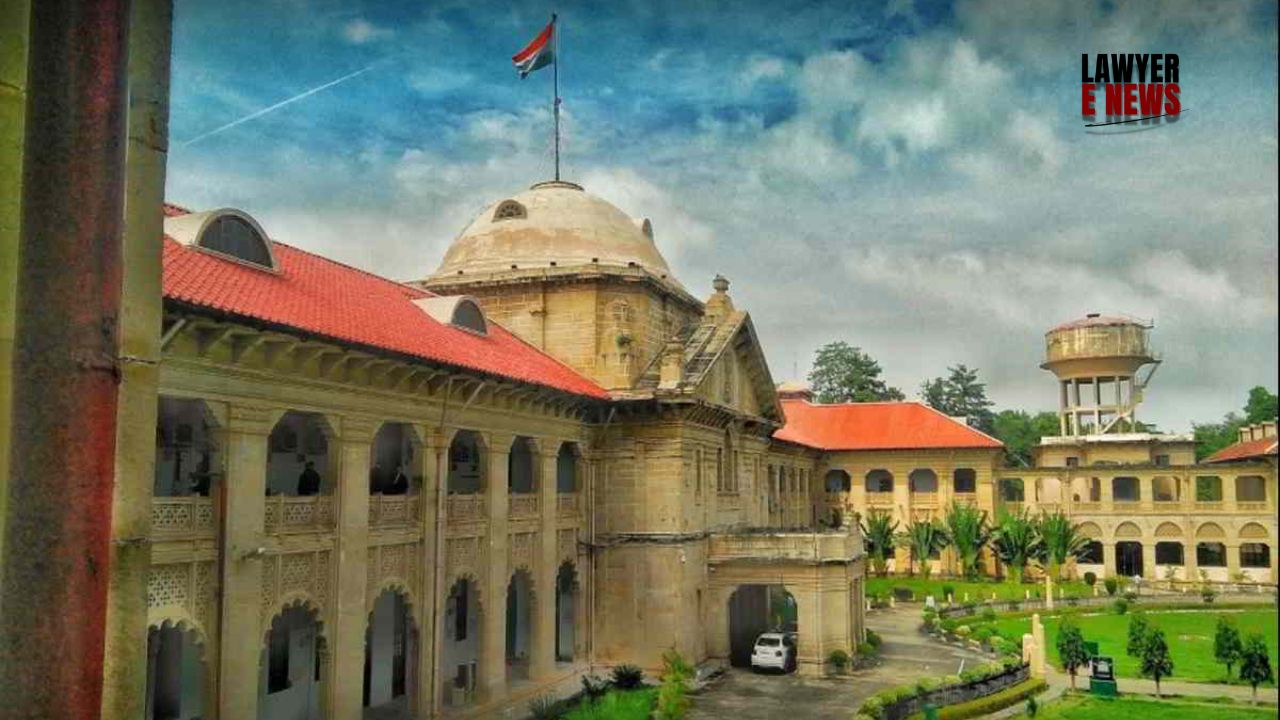-
by Admin
15 February 2026 5:35 AM



Allahabad High Court delivered a significant ruling in Punjab National Bank vs. M/s Allen and Alvan Pvt. Ltd., overturning a judgment by the first appellate court, which had held the bank liable for negligence in a cheque fraud case. The High Court restored the trial court’s decision, which had dismissed both civil suits filed by the respondent, M/s Allen and Alvan Pvt. Ltd., against Punjab National Bank (PNB), alleging wrongful encashment of forged cheques.
The case arose from two civil suits filed by M/s Allen and Alvan Pvt. Ltd., accusing PNB of wrongfully clearing multiple forged cheques between February and June 1988. The respondent claimed that an employee of the company, Indrapal, in conspiracy with bank officials, facilitated the fraudulent clearance of cheques from the company’s account, amounting to Rs. 2,14,336.
The trial court dismissed the suits in 2002, ruling that the plaintiff had failed to provide sufficient evidence of forgery and negligence by the bank. However, the first appellate court reversed the decision in 2009, holding PNB liable and granting a money decree in favor of the plaintiff, based on the court’s comparison of signatures under Section 73 of the Indian Evidence Act.
Whether the appellate court erred in acting as its own handwriting expert without expert testimony under Section 45 of the Evidence Act.
Whether the second suit was barred by Order 2 Rule 2 CPC, as the plaintiff could have included claims for all seven cheques in the first suit.
The bank's liability in clearing the cheques, despite the claims of forgery.
The High Court criticized the first appellate court’s reliance on Section 73 for comparing signatures on the disputed cheques, stating that a judge cannot act as a handwriting expert, especially without technical qualifications. The court emphasized:
“The first appellate court acted as a well-qualified expert, analyzing signatures based on technical aspects like pen-lift and pen-pass, which is beyond the court’s competence without expert evidence.”
Regarding the second suit, the court found that it was barred under Order 2 Rule 2 CPC, as the plaintiff failed to obtain leave of the court before splitting its claims across two suits. The court held that the first suit should have included claims for all seven cheques, as they arose from the same transaction.
Finally, the court ruled that PNB was not negligent, given the high volume of transactions and the plaintiff’s delay in raising the issue. The bank had processed the cheques in the ordinary course of business, and the alleged forgery was only detected years later.
The Allahabad High Court allowed both appeals filed by Punjab National Bank, reinstating the trial court’s decision to dismiss the suits. The money decree awarded by the appellate court was set aside, and PNB was absolved of liability in the cheque fraud case.
Date of Decision: 30th September 2024
Punjab National Bank vs. M/s Allen and Alvan Pvt. Ltd.
